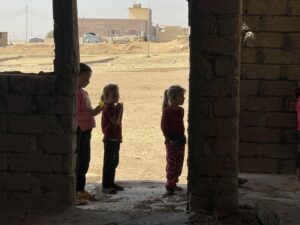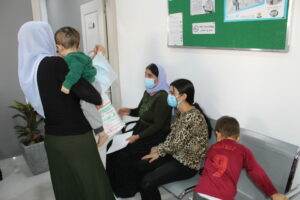January 09, 2023
6 Reasons Why Humanitarian Work is Important
Why humanitarian work is important: Humanitarian aid mostly refers to logistical support as well as short-term relief in the form of supplies (such as food, water, and medical supplies). In the wake of different catastrophes (floods, war, disease outbreaks), humanitarian support aims to offer a rapid aid until the government and other groups can create long-term preparations. Lifesaving, suffering reduction, and protection of human dignity are in the heart of its objectives.
- Humanitarian help is currently needed by more than 135 million people around the globe.
- A total of 68 million individuals worldwide have been evicted from their homes as a result of conflict, violence, and persecution.
Below are top 6 reasons why we need Humanitarian Work:
-
Emergency support
Humanitarian help provides relief in times of need when the most vulnerable lack access to basic necessities like food, shelter, and healthcare. Help is given according to need, with the intention of saving lives, relieving suffering, and upholding human dignity.
In the event of a disaster, immediate action is required to save lives and meet people’s fundamental necessities. These urgent measures depend heavily on humanitarian players, and the assistance they offer is essential to crisis responses, thats why humanitarian work is important in these situations.
-
It saves Lives
The primary goal of humanitarian support is to stop the loss of lives, which is the core goal of any humanitarian intervention. Humanitarian help is essential for reducing the harm, suffering, and fatalities brought on by disasters. Therefore, humanitarian actors create and manage a variety of initiatives aimed at addressing people’s most basic needs and promoting healing. Such provision of humanitarian help to those affected by natural catastrophes or armed conflicts is crucial.
-
Ensuring Nutrition and Food Security
When famine strikes, it is essential that relief be mobilized. Saving lives, securing food supply, and assisting places recovering from food insecurity depend on humanitarian relief.
The improvement of childhood nutrition is another area in which humanitarian help is significant. Millions of kids worldwide are in desperate need of better nutrition and food assistance. NGOs manage humanitarian projects that are crucial to enhancing the nutritional outcomes for undernourished children. Hence, rapid food security and nutrition responses help affected communities recover and save lives.
-
The Global Health Needs Humanitarian Aid
Humanitarian aid affects global health in a variety of important ways. First, organisations involved in humanitarian work oversee medical and mental health initiatives that aid refugees and individuals suffering from catastrophes. Important health initiatives are carried out by humanitarian and development organisations for the marginalised groups.
In order to combat pandemic breakouts, foreign aid plays a great role in improving global health. Many nations need humanitarian aid to stop disease outbreaks because they lack the resources to do so. Humanitarian aid, in this case, is a necessity because it can stop pandemics
Immunisations, is another reason why humanitarian aid is essential for promoting global health. Once more, several nations are unable to immunise their citizens. Reaching numerous communities with foreign aid helps to improve global health by halting larger disease outbreaks.
-
Strives to ensure readiness
Humanitarian help has a role in preventing future disasters, among other things. There are many different types of humanitarian preparedness, such as pre-positioning aid supplies, helping vulnerable people get ready, and constructing mechanisms to enhance future responses. When a crisis strikes, preparation saves lives, and efficient crisis preparation depends heavily on foreign aid.
In order to be ready for humanitarian situations, there must be systems in place that enable prompt and efficient aid delivery. International organizations, NGOs, and governments can better prepare for impending emergencies with the aid of humanitarian aid. Humanitarian help is crucial in ensuring that populations in disaster-prone areas are ready for such occurrences.
Through funding from humanitarian organizations, nations that frequently experience crises have been able to improve early warning systems, frameworks for reducing catastrophe risk, and crisis preparedness. Building efficient mechanisms that can lessen the effects of future calamities requires international assistance.
-
Education to underprivileged children
Due to armed conflicts and poverty, millions of children worldwide do not have access to school. Children around the world who would not otherwise be able to attend school are helped greatly by humanitarian organizations. Furthermore, schools are affected when emergencies strike. While disaster relief efforts are ongoing, humanitarian actors seek to ensure that children’s education may continue. They also help with school reconstruction so that children can resume their studies. These initiatives are just another powerful illustration of how crucial humanitarian relief is.
Humanitarian agencies and NGOs heavily rely on donations, as it is the only source of financial income that enable them to support the vulnerable and build their communities. We urge you to take part in this great work!
To partner with us on this work, we encourage you to donate now from here: https://www.roadsofsuccess.org/donate.
Or visit the following links:
PayPal : info@roadsofsuccess.org
Venmo : @Yvette-Isaac-1
Cash App : $roadsofsuccess
Zelle : (626)359-2537
To donate from Egypt please call: 01277442697
Also Read
Robert Thornton Testimony
Put A Smile On A Child’s Face This Christmas 2022!







